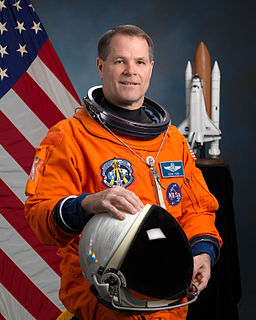A Quote by Ally Brooke
The main thing for all of us was having a ballad, a slower song. Finally, they get to hear more of a vulnerable side to us! We didn't really have that in 'Reflection,' and that's something we all fought for.
Related Quotes
Besides my fast and slooow songs, I further divide my work into three main song types: the ballad or story song, the variation on a theme (saying the same thing over and over and over again) song, and the weird song. It's important to have weird songs, but I find that a little weirdness goes a long way.
The interesting thing about a song like 'Bulletproof Heart' - it was [originally] called 'Trans Am' - the interesting thing about the amalgamation of that song was that the song also lived within us, like we all got to live with the song and it was around for about a year before we recorded it again, so the song got to really transform, which you don't really get to do.
Faith can cut in so many ways. If you're penitent and not triumphal, it can move us to repentance and accountability and help us reach for something higher than ourselves. That can be a powerful thing, a thing that moves us beyond politics as usual, like Martin Luther King did. But when it's designed to certify our righteousness - that can be a dangerous thing. Then it pushes self criticism aside. There's no reflection.
The church, by and large, has had a poor record of encouraging freedom. She has spent so much time inculcating in us the fear of making mistakes, that she has made us like ill-taught piano students: we play our songs, but we never really hear them because our main concern is not to make music to avoid some flub that will get us in dutch.
I'd always been fascinated by people who allow themselves to be so rude and irritated and foul-mouthed and hostile, but usually you can sense there's something vulnerable beneath them - a shield they use to protect that vulnerable side. Finally, when they expose that soft spot, it's kind of touching.
Fear-of not being loved, of abandonment, of being thought to be selfish-is the main thing that keeps us vulnerable and bound in the chains of emotional dependence. Therefore, our two most difficult challenges are to truly believe it is okay for us to be ourselves and to learn to live with, move through, and heal our fears.
The main thing is to have a soul that loves the truth and harbours it where he finds it. And another thing: truth requires constant repetition, because error is being preached about us all the time, and not only by isolated individuals but by the masses. In the newspapers and encyclopedias, in schools and universities, everywhere error rides high and basks in the consciousness of having the majority on its side.
Thus we can get the correct answer for the probability of partial reflection by imagining (falsely) that all reflection comes from only the front and back surfaces. In this intuitively easy analysis, the 'front surface' and 'back surface' arrows are mathematical constructions that give us the right answer, whereas .... a more accurate representation of what is really going on: partial reflection is the scattering of light by electrons inside the glass.




































